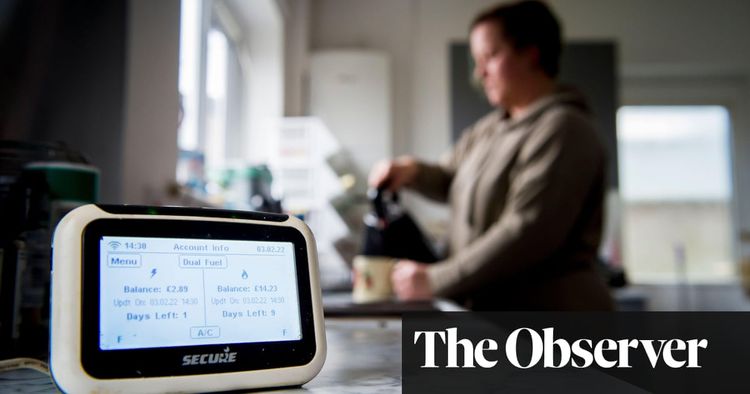A social tariff could bring a warm glow to UK energy policy

Almost ten years ago, Ed Miliband, the ex-leader of the Labour party, initiated the energy price limit with the intention of safeguarding households from unfair charges by halting the increase of their energy expenses. However, despite the implementation of the limit in 2018, the current bills may still be unaffordable, even if they are considered reasonable.
This coming Friday, Ofgem, the industry regulator, will announce the revised maximum amount that energy suppliers can charge for gas and electricity per unit. Experts at Cornwall Insight are anticipating a decrease in the energy price cap, bringing it down from £2,074 per year for an average household to £1,823. This would mark the lowest level observed since the invasion of Ukraine by Russia.
However, homeowners should not anticipate an improvement in their financial situation, cautioned advocates against fuel poverty. This upcoming winter, the price limit will stay significantly higher than the rates observed prior to the onset of the global energy crisis due to the war.
This is because the calculation was created to represent the fundamental expense of providing gas and electricity to homes – and as these expenses increase, so does the limit. Homes can feel confident that the sums they are required to pay are just, but for those who are still facing hardships, this offers little solace.
Over 6 million households are currently experiencing fuel poverty, unable to afford their bills. The situation is only expected to worsen as energy costs drive up inflation across the entire economy. As a result, many are now questioning whether implementing a price cap is the appropriate solution for an industry in turmoil.
Jonathan Brearley, the CEO of Ofgem, is calling on government officials to consider whether this "extensive and simplistic" pricing regulation should be substituted with "a stricter system of offering assistance to consumers".
At the same time, individuals within the energy sector are urging the government to implement a "social energy rate", providing reduced prices on utility bills for households in need.
Nearly 100 charitable organizations and non-profit groups have sent letters to government officials, urging them to swiftly convert this concept into law. Moreover, this proposal has garnered support from the industry as well. Unlike the price limit, this initiative has the potential to not only ensure fairness in billing but also guarantee affordability for the most disadvantaged members of our society.
Up until a short while ago, it seemed like the government officials were paying attention. The chancellor, Jeremy Hunt, made a commitment in his announcement last year that the government would collaborate with consumer organizations and the industry to create a fresh strategy for safeguarding consumers in the energy markets. He mentioned that they would explore various options, such as social tariffs, to determine the most effective approach.
Additional members of Rishi Sunak's cabinet, including the leader of the government, made multiple promises that the government would take the idea of a social tariff into account during their efforts to reform the retail market. Nevertheless, when the consultations were made public last month, there was no longer any reference to this specific measure.
Simon Francis, who oversees the End Fuel Poverty Coalition, is concerned that the government has reneged on its commitments. In a correspondence sent to parliamentarians, which has been reviewed by the Observer, he urges MPs to exert influence on the secretary of state to contemplate implementing a social tariff.
According to Francis, this holds particular significance for individuals who are in their later years, disabled, experiencing health issues, caring for others without pay, raising young children, facing financial disadvantage, or living in households with limited access to fuel.
The lack of clarity regarding social tariff raises concerns about the government's inability to assist those who are most at risk in society. During the upcoming winter season, individuals who receive benefits based on their income will be able to receive an additional £900 to support their energy expenses. Moreover, pensioners will receive £300, and disabled individuals will be granted an extra £150. However, there is a high possibility that numerous individuals will not qualify for this assistance, leaving them unprotected.
A recent study conducted by scholars at the University of York revealed that approximately 1.7 million households experiencing fuel poverty might not receive any assistance due to their lack of benefit eligibility. This concerning figure includes nearly 700,000 households that have children.
The government's reply has been to state that the future prospects of energy prices have substantially enhanced, and they will persistently observe the situation whilst also considering various alternatives, including measures for households facing the highest risk.
This week, as the government plans to impose a price limit that will only marginally ease the burden, these families will find themselves pondering a disregarded dilemma: can an exorbitant energy expense ever be considered just?













































































